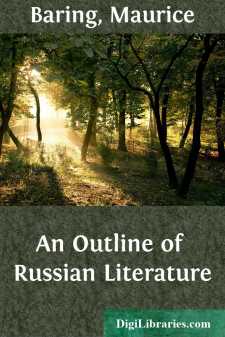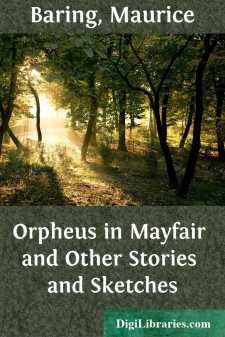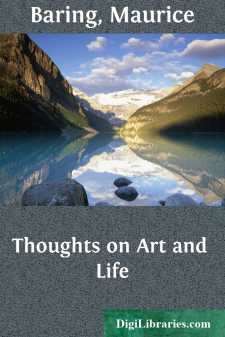Categories
- Antiques & Collectibles 13
- Architecture 36
- Art 48
- Bibles 22
- Biography & Autobiography 813
- Body, Mind & Spirit 142
- Business & Economics 28
- Children's Books 14
- Children's Fiction 11
- Computers 4
- Cooking 94
- Crafts & Hobbies 4
- Drama 346
- Education 46
- Family & Relationships 57
- Fiction 11828
- Games 19
- Gardening 17
- Health & Fitness 34
- History 1377
- House & Home 1
- Humor 147
- Juvenile Fiction 1873
- Juvenile Nonfiction 202
- Language Arts & Disciplines 88
- Law 16
- Literary Collections 686
- Literary Criticism 179
- Mathematics 13
- Medical 41
- Music 40
- Nature 179
- Non-Classifiable 1768
- Performing Arts 7
- Periodicals 1453
- Philosophy 64
- Photography 2
- Poetry 896
- Political Science 203
- Psychology 42
- Reference 154
- Religion 513
- Science 126
- Self-Help 84
- Social Science 81
- Sports & Recreation 34
- Study Aids 3
- Technology & Engineering 59
- Transportation 23
- Travel 463
- True Crime 29
Maurice Baring
Maurice Baring (1874–1945) was an English writer, poet, and journalist known for his novels, essays, and translations. He came from a wealthy and influential family and was a key figure in early 20th-century British literature. His notable works include "C" and "Cat's Cradle," where he often explored themes of faith, society, and morality. In addition to his literary career, Baring also served as a diplomat and was a close associate of several prominent literary figures, including G.K. Chesterton and Hilaire Belloc.
Author's Books:
Sort by:
by:
Maurice Baring
CHAPTER I For the purposes of the average Russian, and still more for the purposes of the foreigner, Russian literature begins with the nineteenth century, that is to say with the reign of Alexander I. It was then that the literary fruits on which Russia has since fed were born. The seeds were sown, of course, centuries earlier; but the history of Russian literature up to the nineteenth century is not...
more...
by:
Maurice Baring
ORPHEUS IN MAYFAIR Heraclius Themistocles Margaritis was a professional musician. He was a singer and a composer of songs; he wrote poetry in Romaic, and composed tunes to suit rhymes. But it was not thus that he earned his daily bread, and he was poor, very poor. To earn his livelihood he gave lessons, music lessons during the day, and in the evening lessons in Greek, ancient and modern, to such...
more...
by:
Maurice Baring
INTRODUCTION he long obscurity of the Dark Ages lifted over Italy, awakening to a national though a divided consciousness. Already two distinct tendencies were apparent. The practical and rational, on the one hand, was soon to be outwardly reflected in the burgher-life of Florence and the Lombard cities, while at Rome it had even then created the civil organization of the curia. The novella was its...
more...




